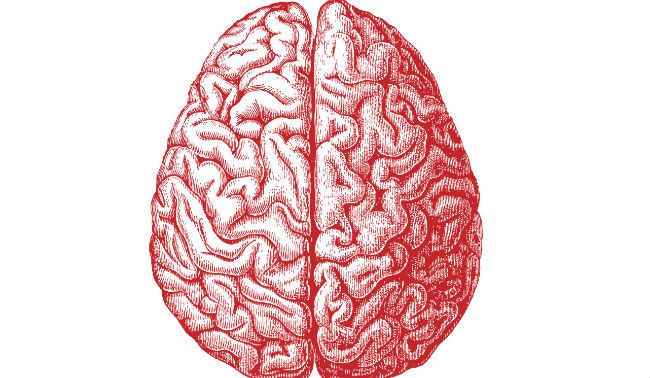I just graduated with my masters degree, lots of aspirations, and my fair share of debt. I live in New York City, and I am trying to do what many think is the impossible - make a living as a writer. I mention this personal anecdote not to claim poverty (I am incredibly fortunate not to face that problem currently), but rather because I have new financial stresses that weren’t present a month ago - and it’s frying my mental bandwidth (as someone who generally NEVER forgets things like her cell-phone, keys, etc… I have been a total space cadet).
It’s a no brainer (ha) that stress makes us get a bit loopy - but a recent study has proven that poverty is a causal factor (as opposed to being merely correlational) in debilitating medical conditions that make people unable to think, de-stress, and sparking issues with mood instability (all behavioral consequences that exacerbate poverty - leaving the poor trapped in a vicious cycle).
So, what preciously are poverty’s effects on the brain? Allow me to break it down.

Photo: Wiki Commons | Money, money, money
This finding, based on data from Princeton psychologists Mullainathan and Eldar Shafir, makes sense. When we are stressing about our money, time, our love lives, whatever - we are less able to make wise decisions (I certainly know this from personal experience!). This affects wealthier and poorer people alike; but the difference is that poorer individuals face financial scarcity more often - and have a much smaller margin of error in navigating tricky financial situations.
Think about it - if you have money, making sure that your bills are paid isn’t fun, but it doesn’t impact your cognition or dramatically increase your stress level.
A study conducted by Mullainathan and Shafir illustrated how financial stress can impact cognitive function. In a New Jersey mall, the two researchers tested IQ - but before the test was administered, all the respondents were given a prompt that included a couple of questions involving finances, for instance: “Imagine you’ve got car trouble and repairs cost $300. Your auto insurance will cover half the cost. You need to decide whether to go ahead and get the car fixed, or take a chance and hope that it lasts for a while longer. How would you make this decision? Financially, would it be easy or hard?”
While both wealthier and poorer participants (defined by self-reported income) did equally well on the IQ test, when the researchers bumped up the cost of the repair of the car to $3000 dollars, suddenly poor participants’ IQ performance dropped by a dramatic 14 points - while the wealthier participants scores stayed at the same level.

Photo: Michael HuniWeitz/Flickr | Children in Delhi
Rich or poor - sometimes life can be plain annoying. Regardless of who we are, most people deal with being overscheduled, or needing to get something expensive fixed, or having a ridiculous amount of work or schoolwork. But if an individual has financial resources - there is more flexibility. For instance, wealthier individuals can afford to be late to a meeting without facing being fired, or can hire someone as a tutor if a school subject becomes overwhelming. But for poorer individuals, cognitive bandwidth is often impacted by the stress of scarcity - meaning that the small annoyances the we all face have a substantially larger impact. For the poor, lack of resources mean that the margin of error for making mistakes is much smaller than those who have more financial security.

Photo: Wiki Commons | A young girl playing with colored circles during neurotesting
This finding made me pause... But upon reading further reading into the the journal Nature Neuroscience report, I began to understand. Wealthier children have more social help, better nutrition and access to education, and thus, fare far better than peers who lack similar resources. Further, the study conducted by University of Southern California indicates the distinction between wealthier and poorer children were seen most significantly in the areas of the brain that supports language and reading, and executive functions like memory, spatial skills, and decision-making. Says the study’s co-author Elizabeth Sowell, “We found that the relationship between brain (structure) and family income impacted kids’ cognitive functioning.”

Photo: Wiki Commons | Mmmm.. peanut butter. It's tasty and good for you!
The University of Southern California compared the brain surface area of children from wealthier and poorer families - studying difference both through brain scans and cognitive tests. Large variations were observed in the brain surface area of children from the lowest and highest income levels measures - with striking disparities between income groups at the lower end of the scale. For example, there was considerably more difference in results between kids from families earning either $30,000 or $50,000 per year, than those earning between $90,000 to $110,000 yearly.

Photo: Wiki Commons | The human brain
Despite how alarming the results of the tests conducted by both the University of Southern California and Mullainathan and Shafir, both of the researcher teams stressed that solutions lay within reach - and that increasing the kind of school lunches kids are getting from an earlier age, practicing teaching, and addressing the systematic entrenchment of poverty can help to wire the brain in a way that it is not being overly taxed by stress.
At the end of the day - what we, global citizens, really need to internalize and communicate to others is this: individuals live in poverty not out of personal failing, but rather systemic social and institutional issues that keep people poor. And those systems have impact not just on external structures, but can impact us internally. As a society and a world we need to look at scarcity of resources - and figure out how to fix poverty. No one should be so stressed out about getting food, paying rent, and having basic necessities that their cognitive functioning is impacted!
Share your thoughts on these findings in the comments below. I am curious to hear your commentary, critique, and opinions on the neurobiological consequences of poverty!